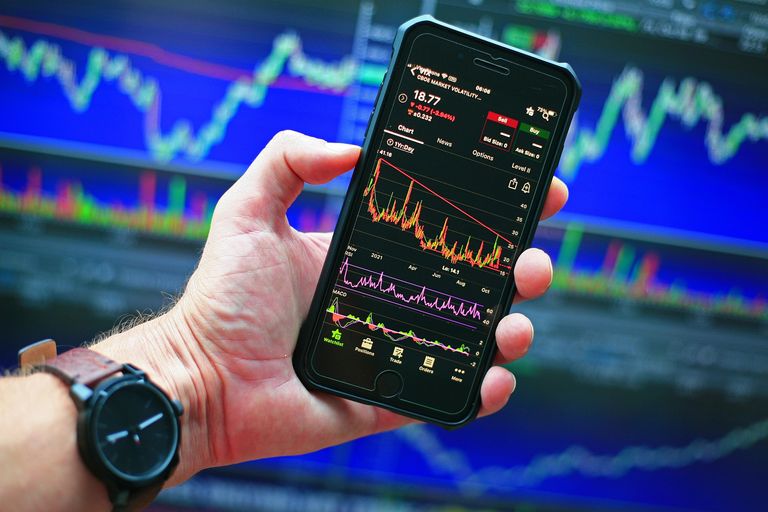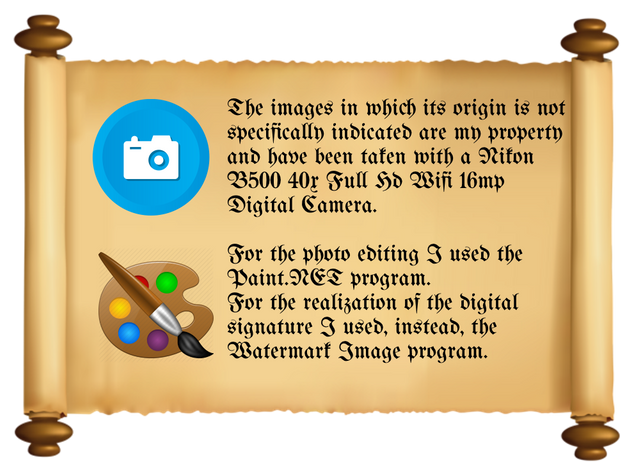
Analyzing the latest events in the crypto ecosystem, where several exchanges and service providers linked to crypto assets have had problems, even one of the once largest exchanges in the world (FTX) has filed for bankruptcy and its manager Sam Bankman-Fried has been arrested, many people ask if it is the same to “store” our crypto assets in one's own wallet or wallet as to leave them in custody in the accounts of an “exchange”. Is there the same risk?
To answer this question, it is important to differentiate the two concepts mentioned: wallet and exchange.
Wallets or “keychains” store and manage the cryptographic keys that allow the user to use their “crypto”. We speak of a “non-custodial wallet” or “self-custodial” precisely when the user has absolute control of that wallet and no one other than him can access his funds. And these wallets can be “hot” (they are managed from the computer or cell phone, for example Coinomi or Metamask) or, the most secure, “cold” or “physical” (a device that connects to a computer via USB port or by bluetooth, like Ledger or Trezor).
These non-custodial wallets give the user a “recovery phrase” that he must keep as securely as possible since this “phrase” is what will allow him to recover his funds tomorrow.
In this way, thanks to non-custodial wallets, the user “owns” their cryptos, without trusting third parties (such as, for example, an exchange). Here comes the famous phrase: “Not your keys, not your coins”: “if they are not your keys, they are not your coins.”
That is to say, unlike having the funds in a non-custodial wallet, if the user decides to deposit their crypto assets in a company, in an exchange, what they are doing is transferring their cryptos to a third party in whom they must trust.
The user who transfers and leaves his crypto in the custody of an exchange will have a “credit” against that company and the company, in turn, will have a liability against the user. In the same way as when someone deposits his money in a bank: he stops having it in his possession and transfers it in custody to a third party (the bank).
So what risk is there when using an exchange?
The biggest risk is that the exchange goes bankrupt and users lose their funds. There are well-known cases in this sense, such as that of Mt. Gox, which was the most important exchange in the world and which went bankrupt in 2014 after it reported having suffered the theft of 850,000 bitcoins belonging to more than 24 thousand clients; or the recent case of FTX, an exchange that occupied second place in the world ranking and that in November 2022 filed for bankruptcy after irregularities in the management of its users' funds and ended with its CEO detained accused of scams.
There is also a risk that, although the exchange continues to operate and does not present a risk of bankruptcy, momentarily and due to some external or internal factor, it suspends withdrawals of crypto assets for a certain time and we cannot access our funds at the time the need.
Does this mean that we should not operate with exchanges? Not in any way. We simply must consider the risks involved and choose, if necessary, the exchange that we consider most secure and responsible.
When choosing to operate with an exchange, it is important to analyze the background and reputation of the exchange with which we want to operate, including studying its Terms and Conditions (which we can find on its website) and if they have any mechanism through which they make it transparent to their clients how They manage the deposited funds. And, above all, we must always keep in mind that we are delegating the holding of our funds to a third party.
Finally, it is also important to note that an exchange can be used not only to store cryptos but can also be used solely to buy and/or sell cryptos: for example, you can buy cryptocurrencies on an exchange and immediately transfer the cryptos to a non-custodial wallet.
We then saw the differences that exist between a non-custodial wallet and an exchange and the risks that we should evaluate when deciding how to store our cryptos.


Analizando los últimos acontecimientos en el ecosistema cripto, donde varios exchanges y empresas prestadoras de servicios vinculados a criptoactivos han tenido inconvenientes, incluso uno de los otrora exchanges más grandes del mundo (FTX) ha presentado la quiebra y su responsable Sam Bankman-Fried ha sido arrestado, muchas personas consultan si es lo mismo “almacenar” nuestros criptoactivos en una billetera o wallet propia que dejarlas en custodia en las cuentas de un “exchange”. ¿Se corre el mismo riesgo?
Para responder esta pregunta es importante diferenciar los dos conceptos mencionados: wallet y exchange.
Las wallets, billeteras o “llaveros” almacenan y administran las claves criptográficas que le permiten al usuario hacer uso de sus “criptos”. Se habla de “wallet non custodial” o “self custodial” justamente cuando el usuario tiene el control absoluto de esa wallet y nadie más que él puede acceder a sus fondos. Y estas wallets pueden ser “calientes” (se administran desde la computadora o el celular, por ejemplo Coinomi o Metamask) o, las más seguras, “frías” o “físicas” (dispositivo que se conecta a una computadora vía puerto USB o por bluetooth, como Ledger o Trezor).
Estas wallets non custodial le dan al usuario una “frase de recuperación” que debe conservar con la mayor seguridad posible ya que dicha “frase” es la que le permitirá el día de mañana recuperar sus fondos.
De esta forma, gracias a las wallets non custodial el usuario es “dueño” de sus criptos, sin confiar en terceros (como, por ejemplo, un exchange). Aquí surge la famosa frase: “Not your keys, not your coins”: “si no son tus llaves, no son tus monedas”.
Es decir que, a diferencia de tener los fondos en una wallet non custodial, si el usuario decide depositar sus criptoactivos en una empresa, en un exchange, lo que está haciendo es ceder sus criptos a un tercero en el cual deberá confiar.
El usuario que transfiere y deja en custodia de un exchange sus criptos, tendrá un “crédito” contra esa empresa y la empresa, a su vez, tendrá un pasivo contra el usuario. De la misma forma que cuando alguien deposita su dinero en un banco: deja de tenerlo en su poder y lo cede en custodia a un tercero (el banco).
Entonces, ¿qué riesgo existe al utilizar un exchanges?
El mayor de los riesgos es que el exchange quiebre y los usuarios pierdan sus fondos. Existen casos muy conocidos en este sentido, como el de Mt. Gox, que fue el exchange más importante del mundo y que quebrara en 2014 luego de que denunciara haber sufrido el robo de 850.000 bitcoins pertenecientes a más de 24 mil clientes; o el reciente caso de FTX, exchange que ocupaba el segundo lugar en el ranking mundial y que en noviembre de 2022 presentara la quiebra luego irregularidades en el manejo de fondos de sus usuarios y terminara con su CEO detenido acusado de estafas.
También existe riesgo de que, si bien el exchange continua operando y no presente riesgo de quiebra, momentáneamente y por algún factor externo o interno, suspenda los retiros de criptoactivos por un tiempo determinado y no podamos acceder a nuestros fondos en el momento en que los necesitamos.
¿Significa esto que no debemos operar con exchanges? No, de ninguna manera. Simplemente que debemos considerar los riesgos involucrados y elegir, en caso de necesitarlo, el exchange que consideremos más seguro y responsable.
Al elegir operar con un exchange, resulta importante analizar los antecedentes y reputación del exchange con el cual queremos operar, incluso estudiar sus Términos y condiciones (que podemos encontrar en su página web) y si tienen algún mecanismo mediante el cual transparentan con sus clientes cómo administran los fondos depositados. Y, ante todo, siempre debemos tener presente que estamos delegando la tenencia de nuestros fondos en un tercero.
Por último, también es importante remarcar que se puede utilizar un exchange no sólo para almacenar criptos sino que también puede utilizarse únicamente para comprar y/o vender criptos: por ejemplo, se pueden comprar criptomonedas en un exchange e inmediatamente después transferir las criptos a una wallet non custodial.
Vimos entonces las diferencias que existen entre una wallet non custodial y un exchange y los riesgos que deberíamos evaluar a la hora de decidir cómo almacenar nuestras criptos.



Los enlaces de mis sitios web/Links to my websites :
Parcial o totalmente pueden encontrar este post reproducido en algunos de mis blogs y/o Webs de los cuales generalmente tomo nota para elaborar los contenidos en #BLURT.
Partially or totally you can find this post reproduced in some of my blogs and/or Webs of which I usually take note to elaborate the contents in #BLURT.


Upvoted. Thank You for sending some of your rewards to @null. Read my last posts to make sure that BLURT burning is profitable for you. Before using this bot please make sure your account has at least 100 BP. Get more BLURT:
@ mariuszkarowski/how-to-get-automatic-upvote-from-my-accounts@ blurtbooster/blurt-booster-introduction-rules-and-guidelines-1699999662965@ nalexadre/blurt-nexus-creating-an-affiliate-account-1700008765859@ kryptodenno - win BLURT POWER delegationNote: This bot will not vote on AI-generated content
Thanks @ctime!
Telegram and Whatsapp
Thank you for curating and voting for my content @blurtconnect-ng.